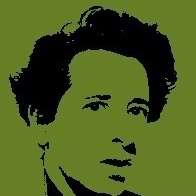The Hannah Arendt´s amor mundi as the foundation of her idea of politics
Main Article Content
Abstract
H. Arendt's reflections on love and its connection with her political theory have often been undervalued and kept on the sidelines. Throughout her work Arendt elaborates a compendium of types of love to conclude in the amor mundi that encompasses all other forms. She forges a political theory in which plurality is the basis of man's natural political condition. There is no boundary between love and politics but a difference of degree in the continuum. What he calls civic friendship can deal with the common world by bridging the gap between love and politics. The political is the bet for the other, a common and public world where otherness and temporality are inseparable. For Arendt it means forming a political community by appealing to communication. It is necessary to rethink, once again, politics as a relationship of respect, friendship and action in plurality because this civic friendship supposes a dialogue between friends who have something in common. Politics is born "among" men claiming this plurality and is linked to isegory and friendship.
Downloads
Article Details

This work is licensed under a Creative Commons Attribution-NonCommercial-NoDerivatives 4.0 International License.
Authors retain ownership of copyright and reproduction rights.
Authors may make other independent and additional contractual arrangements for non-exclusive distribution of the version of the article published in this journal (e.g., inclusion in an institutional repository or publication in a book) as long as they clearly indicate that the work was first published in this journal.
Authors are allowed and encouraged to publish their work on the Internet (e.g. on institutional or personal websites) after the review and publication process, as it may lead to productive exchanges and to a wider and faster dissemination of the published work.
References
Arendt, H. Los orígenes del totalitarismo. Madrid, Alianza, 1981.
Arendt, H. Sobre la revolución. Madrid, Alianza, 1988
Arendt, H. ¿Por qué filosofar? Cuatro conferencias, Barcelona, Paidós, 1996.
Arendt, H. Entre el pasado y el futuro: ocho ejercicios sobre la reflexión política. Barcelona, Península, 1996.
Arendt, H. ¿Qué es la política? Barcelona, Paidós, 1997.
Arendt, H. Hombres en tiempos de oscuridad. Barcelona, Gedisa, 2001.
Arendt, H. La condición humana. Barcelona, Paidós, 2001
Arendt, H. La vida del espíritu. Barcelona, Paidós, 2002.
Arendt, H. Conferencias sobre la filosofía política de Kant. Barcelona, Paidós, 2003.
Arendt, H. Responsabilidad y juicio. Barcelona, Paídós, 2007.
Arendt, H. Lo que quiero es comprender. Madrid, Trotta, 2010.
Arendt, H. Hannah Arednt: Diario filosófico: 1950-1973. 2 vols. Barcelona, Herder, 2011.
Arendt, H. Crisis de la República. Madrid, Trotta, 2015.
Bárcena F. “Hannah Arendt: una poética de la natalidad”. Daimón Revista Internacional de Filosofía 26, 2002, pp.107-123.
Bárcena F. Hannah Arendt: una filosofía de la natalidad. Barcelona, Herder, 2006.
Birulés, F. Una herencia sin testamento: Hannah Arendt. Barcelona, Herder, 2007.
Campillo, A. El concepto de amor en Arendt. Madrid, Abada, 2019.
Campillo, N. “Mundo y pluralidad en hannah Arendt”. Intersticios 9(22-23), 2005, pp.87-100.
Campillo, N. Hannah Arendt: lo filosófico y lo político. Valencia, PUV, 2013.
Collin, F. “Nacer y tiempo. Agustín en el pensamiento arendtiano”. En: Birulés, F. (comp). Hannah Arendt. El orgullo de pensar. Barcelona, Gedisa, 2006, pp. 77-96.
Di Pego, A. “La cuestión judía y la creencia de mundo en la modernidad desde la perspectiva de Hannah Arendt”. Kriterion 145, 2020, pp.7-30.
Eilenberger, W. El fuego de la libertad. El refugio de la filosofía en tiempos sombríos 1933-1943. Madrid, Taurus, 2021.
Esposito, R. “¿Polis o comunitas?”. En: Birulés, F. (comp). Hannah Arendt. El orgullo de pensar. Barcelona, Gedisa, 2006, pp. 117-129.
Fernández, D. “El concepto de amor en Hannah Arendt”. Foro Interno 16, 2016, pp.101-122.
Fromm, E. El arte de amar. Barcelona, Paidós, 2007.
Guzmán, L.J. “Bárcena, F. “Hannah Arendt: una filosofía de la natalidad”, Athenea Digital 11, 2007, pp.256-258.
Han, B.C. La agonía del Eros. Barcelona, Herder, 2014.
Lefort, C. “Hannah Arendt y la cuerstión de lo político”. En: Birulés, F. (comp). Hannah Arendt. El orgullo de pensar. Barcelona, Gedisa, 2006, pp. 131-144.
Nussbaum, M. Emociones políticas. Barcelona, Paidós, 2014.
Palacios, V.H. “El amor al mundo en tiempos de oscuridad. Un siglo de Hanna Arendt, una pensadora secular”. Thémata. Revista de Filosofía 38, 2007, pp.77-89.
Prinz, A. La filosofía como profesión o el amor al mundo. La vida de Hannah Arendt, Barcelona, Herder, 2001.
Sánchez, C.A. “De la alienación a la expoliación del sujeto”. Nuevo Derecho 7(9), 2011, pp.115-123.
Sorrentino, V. “Amor mundi y política en Hannah Arendt”. Revista Laguna 25, 2009, pp.19-30.
Straehle, E. “Autoridad, soledad y mundo: un diálogo entre Jaspers y Arendt”. Bajo Palabra 10, 2015, pp.17-29.
Young-Bruehl, E. Hannah Arendt; una biografía. Barcelona, Paidós, 2006.

